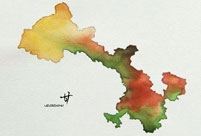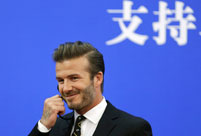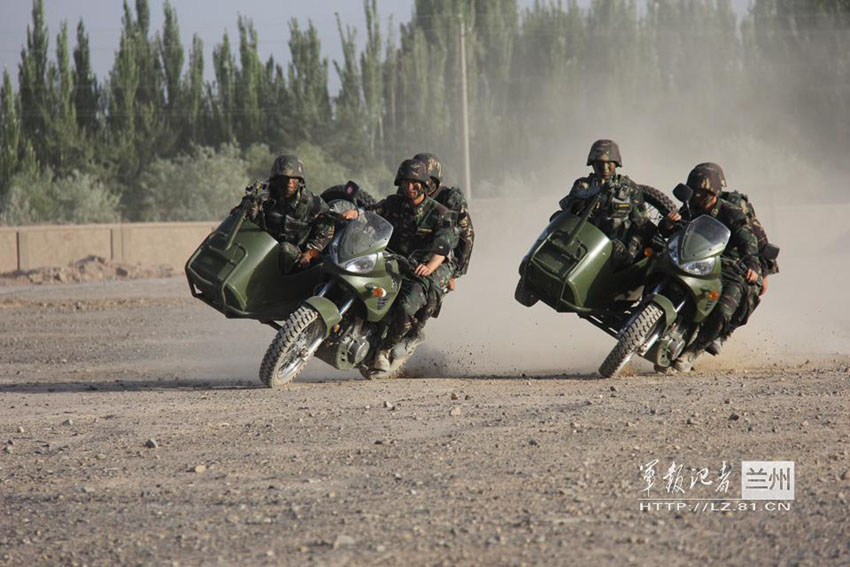 First Russian Street in Tianjin open to public
First Russian Street in Tianjin open to public
 Motorcycle stunt on the Bund
Motorcycle stunt on the Bund
 French Spiderman Alain Robert climbs up Galaxy Hotel in Macao
French Spiderman Alain Robert climbs up Galaxy Hotel in Macao
 Africans in Guangzhou
Africans in Guangzhou
 Pole dancer shows strength and beauty up in the air
Pole dancer shows strength and beauty up in the air
 College girls call for protection of ecological space on earth
College girls call for protection of ecological space on earth
 Top 10 celebrities driving auto brands
Top 10 celebrities driving auto brands
 10 low-carbon tips to save money
10 low-carbon tips to save money
 Luxury cars make Asia premiere at Auto China
Luxury cars make Asia premiere at Auto China
 Versatile dog
Versatile dog
As the dust settles on US President Barack Obama's Asian trip, it seems that Washington got less out of it than its hosts, but Beijing is now more aware of US intentions in the region, observers said.
During Obama's trip, Japan, South Korea, Malaysia and the Philippines have achieved their goal of a greater US security presence but have done little to advance the Trans-Pacific Partnership, a key strategic goal of Obama's economic policy.
"Though Obama tried to avoid directly confronting China during the four-nation visit, he did challenge Beijing by making strident remarks in Japan and signing a military agreement with the Philippines, a move China found provocative," said Sun Zhe, director of the Center of China-US Relations at Tsinghua University.
The International New York Times said in a front page story on Monday under the headline "Avoiding Beijing, but not ignoring it" that "on every stop of his Asian journey in the past week, President Obama has spoken to two audiences: America's allies and China".
Washington and Manila signed a decadelong agreement on Monday to allow a greater US military presence in the Philippines.
Obama warned on Tuesday against the use of force to resolve territorial disputes as he addressed US and Filipino forces in Manila.
"We believe that international law must be upheld, that freedom of navigation must be preserved and commerce must not be impeded. We believe that disputes must be resolved peacefully and not by intimidation or force," he said.
Beijing has said navigational freedom in the South China Sea has never been interrupted and that it believes negotiation is the best way to solve disputes.
Obama also assured Manila on Tuesday that a 1951 defense treaty between the two nations commits the US to defend the Philippines.
"And no potential aggressor can be under the illusion that either of them stands alone. In other words, our commitment to defend the Philippines is ironclad. The US will keep that commitment because allies will never stand alone," Obama said.
However, the US president did not give a clear-cut commitment to the Philippines that US military forces would come to its aid in the event of a conflict in the South China Sea.
This was in stark contrast to what Obama said in Japan where he said the defense treaty with Tokyo covers the Diaoyu Islands, part of China's sovereign territory.
Wu Shicun, president of the National Institute for the South China Sea, said US assurances to Japan and the Philippines were aimed at "conciliating" them and did not mean the US will rush to get involved in any military conflict with China.
"Obama's promises to allies are more symbolic rather than substantive," he said.
Shi Yinhong, director of the Center for American Studies at Renmin University of China in Beijing, told Reuters that the Obama administration probably felt its message of deterrence to China and reassurance to Japan and other allies was delivered successfully.
"But if we want to know if the trip seriously harmed US-China relations and damaged US strategic and economic interests, well, that is a difficult question to answer," Shi said.
Hong Kong-based Takungpao newspaper said in a commentary on Tuesday that the security situation in the region had worsened.
"Did Obama's Asia trip strike the right balance? No, quite the opposite," the paper said.
"The US has tried to consolidate alliances with countries such as Japan and the Philippines, and this has deepened Beijing's concerns. Those countries may now feel they have nothing to fear and they could feel emboldened and this complicates the situation."
Sun from Tsinghua said Obama failed to realize his Trans-Pacific Partnership goal and made little economic headway on the trip. The partnership encompasses 12 Pacific countries but remains deeply divisive among the public and politicians who fear that US goods will flood their markets.
Washington may feel frustrated, Sun said, pointing out that Obama's trip resulted in nothing tangible on the economic front.
This was in sharp contrast to Beijing's massive economic cooperation with Southeast Asian nations announced in recent years, he added.
Obama's talks with South Korean President Park Geun-hye also saw little in the way of tangible benefits, either economically or militarily, according to an editorial in South Korea's Chosun Ilbo newspaper which said "the US cannot exert leadership in Asia only with words".
 Overseas returnees strive for dreams in Beijing
Overseas returnees strive for dreams in Beijing Fried up: Chili pork bonanza in Central China
Fried up: Chili pork bonanza in Central China Hand-painted maps go viral online
Hand-painted maps go viral online 4th Beijing Int'l Film Festival ends
4th Beijing Int'l Film Festival ends Commando elite specializes in sign language
Commando elite specializes in sign language Man photoshops himself into girlfriend's childhood photos
Man photoshops himself into girlfriend's childhood photos Photo story: Stallholders at Beijing Zoo Wholesale Market
Photo story: Stallholders at Beijing Zoo Wholesale Market Artists on backstage
Artists on backstage Beckham launches fund to support youth soccer in China
Beckham launches fund to support youth soccer in China 'African Street' in Guangzhou
'African Street' in Guangzhou Special operation members in comprehensive training
Special operation members in comprehensive training Cute Shaolin boy melts the hearts of millions
Cute Shaolin boy melts the hearts of millions Giant panda Sijia is back to happy life
Giant panda Sijia is back to happy life Richest Chinese of 2014: half from the mainland
Richest Chinese of 2014: half from the mainland Chengdu - laid-back lifestyle makes happiest city
Chengdu - laid-back lifestyle makes happiest cityDay|Week|Month